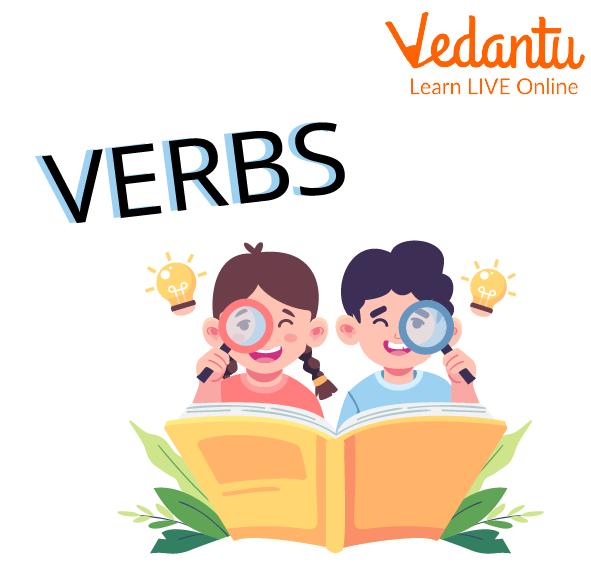Essential Verbs Concepts and Practice Questions for Class 1 Students
FAQs on Verbs in English Grammar for Class 1 – CBSE 2025-26 Guide
1. What is a verb for a Class 1 student?
For a Class 1 student, a verb is best understood as an 'action word' or a 'doing word'. It is a word in a sentence that tells us what someone or something is doing. For example, in the sentence 'The bird sings a song,' the word 'sings' is the verb because it tells us what the bird is doing.
2. What are some common action words taught in Class 1 English grammar?
In Class 1, students learn simple and common action words they see in their daily lives. According to the CBSE syllabus for 2025-26, some typical examples include:
- eat
- drink
- play
- run
- sleep
- read
- write
- jump
- laugh
- sing
3. How can I easily find the verb in a sentence?
To easily find the verb in a sentence, ask yourself, 'What is the action happening?' or 'What is the person or thing doing?'. The word that answers this question is the verb. For instance, in 'The dog runs fast,' if you ask 'What is the dog doing?', the answer is 'runs'. So, runs is the verb.
4. Why are verbs often called 'doing words'?
Verbs are often called 'doing words' because this is the easiest way to explain their main job in a sentence. This term helps a child understand that a verb describes an action or something that is being done. For example, 'kicking' is doing something, 'eating' is doing something, and 'reading' is doing something. The name 'doing word' directly connects the word to its function of showing action.
5. What is the main difference between a verb and a noun for a Class 1 student?
The main difference is what they describe. A noun is a 'naming word' for a person, place, animal, or thing (like boy, school, cat, ball). A verb, on the other hand, is an 'action word' that describes what the noun is doing (like runs, studies, meows, bounces). In the sentence 'The boy kicks the ball,' 'boy' and 'ball' are nouns, while 'kicks' is the verb.
6. Can a complete sentence exist without a verb?
No, a complete sentence cannot exist without a verb. The verb is the most important part of a sentence because it provides the main action or state of being. Without a verb, a group of words is just an incomplete thought. For example, 'The girl in the park' is not a full sentence. But 'The girl plays in the park' is a complete sentence because the verb 'plays' tells us what the girl is doing.
7. How do pictures help us learn about verbs?
Pictures are very helpful for learning verbs because they show the action visually. When you see a picture of a child sleeping, your brain connects the image of the action directly to the word 'sleeping'. This makes the meaning of the verb clear and easy to remember, which is a key learning method for topics in the Class 1 English curriculum.
























